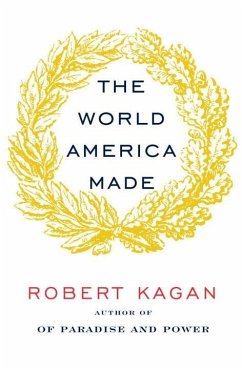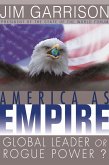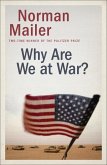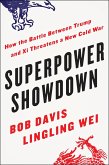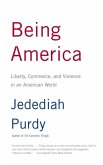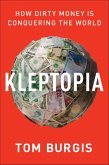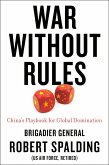Dieser Download kann aus rechtlichen Gründen nur mit Rechnungsadresse in A, B, BG, CY, CZ, D, DK, EW, E, FIN, F, GR, HR, H, IRL, I, LT, L, LR, M, NL, PL, P, R, S, SLO, SK ausgeliefert werden.
Financial Times
Kagan s writing bristles with insights and ideas.
Foreign Affairs
An extended and convincing argument against the thesis that there is anything inevitable about American decline.
Commentary
Accessible, thought-provoking and extraordinary. . . . Robert Kagan has both the foreign policy credentials and political street cred to know from whence he speaks. . . . A book about such a grand topic as global strategy runs two risks. First is making definitive assertions in the face of enormous complexity. . . . The second is imparting too much meaning from historical events. . . . However, Mr. Kagan avoids both traps. He skillfully reasons from a wide breadth of compelling facts that from the end of World War II to today, for better (he believes) or worse, and often with great ambivalence, America has raised the living standards of the world while helping democracy grow and flourish and the democratic world should and will likely want to keep it that way.
Pittsburgh Post-Gazette
The book makes the case that the nation s decline is a myth, a reaction to the financial crisis of 2008 rather than to any genuine geopolitical shifts.
The New York Times
These ideas struck a chord with a President accused of leading a great American retreat.
TIME
Kagan grabs the reader s attention from page one. . . . Kagan makes a powerful point: If America were to make a serious effort to disengage in world affairs, the world quickly would devolve into a much more scary and dangerous place.
The Augusta Chronicle
[Kagan] seems to care less about partisanship than about ideas, particularly his advocacy for a powerful American role in the world. . . . The virtue of Kagan s book is that his ideas and logic are so clearly laid out that readers can see where they agree or disagree.
The Washington Post
Kagan paints with a broad brush, sprinkling a memorable metaphor here, a striking simile there . . . He provides a compelling demonstration that whether it s protecting the sea lanes vital for free trade or nudging societies toward democracy, the world stands a better chance with America in prime position than with China or Russia in the lead.
The New York Times Book Review
[Marco] Rubio s foreign-policy views have evidently been recently shaped by a reading of Robert Kagan s The World America Made, a much-discussed refutation of the now-popular notion of American decline. As a Romney advisor who has penned bedside reading for President Barack Obama, Kagan could plausibly claim to be the most prominently cited writer in Washington right now.
Foreign Policy Magazine
Intelligent, cogent, and timely.
Publishers Weekly
Serious, scholarly . . . [These are] ideas expressed clearly and consicely.
David Ignatius, Washington Post Writers Group
The foreign policy blueprint for the next Republican president.
Senator Marco Rubio
Kagan grabs the reader s attention from page one . . . He makes a powerful point: If America were to make a serious effort to disengage in world affairs, the world quickly would devolve into a much more scary and dangerous place . . . If you have time to read just one book, I suggest Kagan s.
Major General Perry Smith
Magisterial . . . It s a small book, it s a great book.
Bill Bennett
Very important . . . A wonderful book.
Hugh Hewitt
A must-read.
Lou Dobbs

